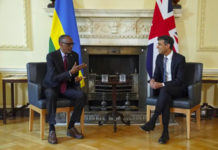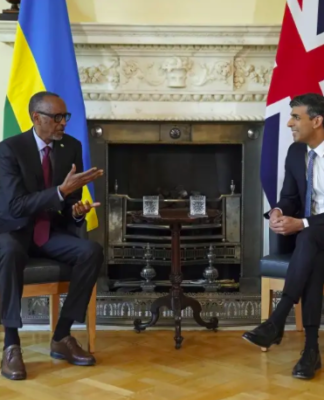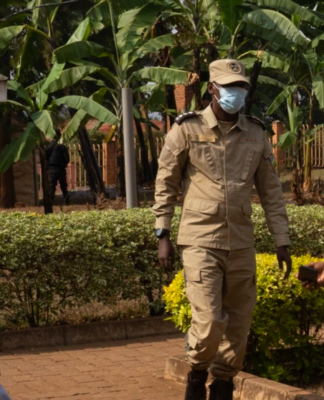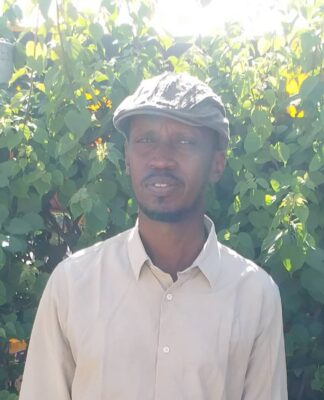It is game over. President Paul Kagame has audaciously executed a constitutional coup d’etat whose objective is to entrench his rule for life. To achieve this brazen deed Kagame devised a Machiavellian scheme for overriding Article 101 of the Rwandan constitution which states that “The President of the Republic is elected for a term of seven years renewable only once” and that “Under no circumstances shall a person hold the office of President of Republic for more than two terms.” According to Article 101, Kagame, who has ruled Rwanda for 21 years (as president since 2000 and the country’s de facto leader before then), would leave office in 2017 after serving two seven-year terms. That is now history, thanks to Kagame’s four-part stealth strategy for becoming president-for-life.
The first part of the strategy is Kagame’s insistence that he does not favour removal of presidential term limits. Rather, he claims, the Rwandan people should decide. A shrewd move indeed. This is a case of reverse psychology involving advocacy of an outcome that is opposite to the one desired. This stance is for public relations intended to conceal power grab.
The second part of the Kagame strategy might appear bizarre to those unfamiliar with Rwandan politics. Rwandan “opposition” parties are the leading advocates for constitutional ammendment for retention of Kagame presidency. Kagame’s Rwandan Patriotic Front (RPF) whose members of parliament constitute 76.2% is on surface silent on the matter. The Social Democratic Party (PSD), the second largest party with 13%, the Liberal Party (PL), the third largest at 9.3%, and other smaller parties share 1.5%, have made the loudest noise in support for the lifting of term limits.
PSD, led by Vincent Biruta, who is Kagame’s cabinet minister for natural resources, has resolved to support removal of term limits. PL, whose first vice president is the Speaker of parliament, Donatila Mukabalisa, has similarly called for removal of presidential term limits. Kagame’s Minister for Internal Security, Sheikh Musa Fazil Harerimana, from the Idealist Democratic Party (PDI), was the first to assert in 2011 that the constitution should be amended to allow Kagame to stay in power.
The third component of the Kagame strategy is to sharply intensify personality cultism. Rwandan media became flooded with reports about Kagame’s exceptionalism by depicting him a rare leader that has almost singlehandedly transformed Rwanda into Africa’s economic success story. Rwanda is said to have become prosperous and lifted millions out of poverty during Kagame’s 21-year administration. Accordingly, he should be allowed to finish the job.
In reality Rwanda remains one of the poorest countries in the world, and Africa’s most aid-dependent nation with 40% of its budget derived from aid donations. The 2015 World Bank’s Development Indicators show Rwanda to be the poorest country in East Africa except for Burundi. Rwanda’s per capita income stands at $638, against Kenya’s $1,245, Tanzania’s $912, and Uganda’s $657. If poverty is measured by the population earning less than $1.25 a day, 63% of Rwandans are poor. If the $2 a day poverty indicator is applied, 83% are poor.
The fourth part of Kagame’s strategy for clinging to power is the most devastating, involving almost the entire adult population in Rwanda. Largely unnoticed by the outside world, the Rwandan state machinery has descended on every town and village forcing millions to sign petitions in support of constitution amendment to allow Kagame to grab power.
This act is easily achieved because Rwanda is a tightly-controlled totalitarian state. Rwanda’s territorial administration is divided into provinces, districts, sectors, cells and “imidugudu” or village, the last being the smallest administrative entity. In the official rhetoric, the imidugudu and cells are means through which priorities at a grassroots are identified and addressed. The ugly side of imidugudu and cells is that they are the nerve-centres of the comprehensive surveillance system whereby local functionaries are enlisted as watchers. And almost everyone in Rwanda is watched. Imidugudu and cells are also the very means of top-down enforcement of orders and instructions.
The case of signing petitions for removal of presidential term limits is no exception. Only the foolish would dare resist the order to sign the petition, thereby risking their wellbeing. One need look no further than the U.S. State Department’s 2013 human rights report in which Rwanda’s political environment was described in chilling terms: “…major human rights problems included arbitrary or unlawful killings both inside and outside of the country, disappearances, torture, harsh conditions in prisons and detention centers, arbitrary arrest, prolonged pretrial detention, and government infringement on citizens’ privacy rights.”
Kagame’s constitutional coup d’etat is fait accompli. About three million Rwandans are reported to have already filed petitions in support of removing presidential term limits. Meanwhile more petitions are submitted almost daily. The Rwandan rubber stamp parliament is scheduled to review the petitions and conduct a national referendum whose outcome is a foregone conclusion. Kagame’s totalitarian state machinery has already steamrolled the Rwandan population into submission. The Rwandan head of state is already is president-for-life.





























































